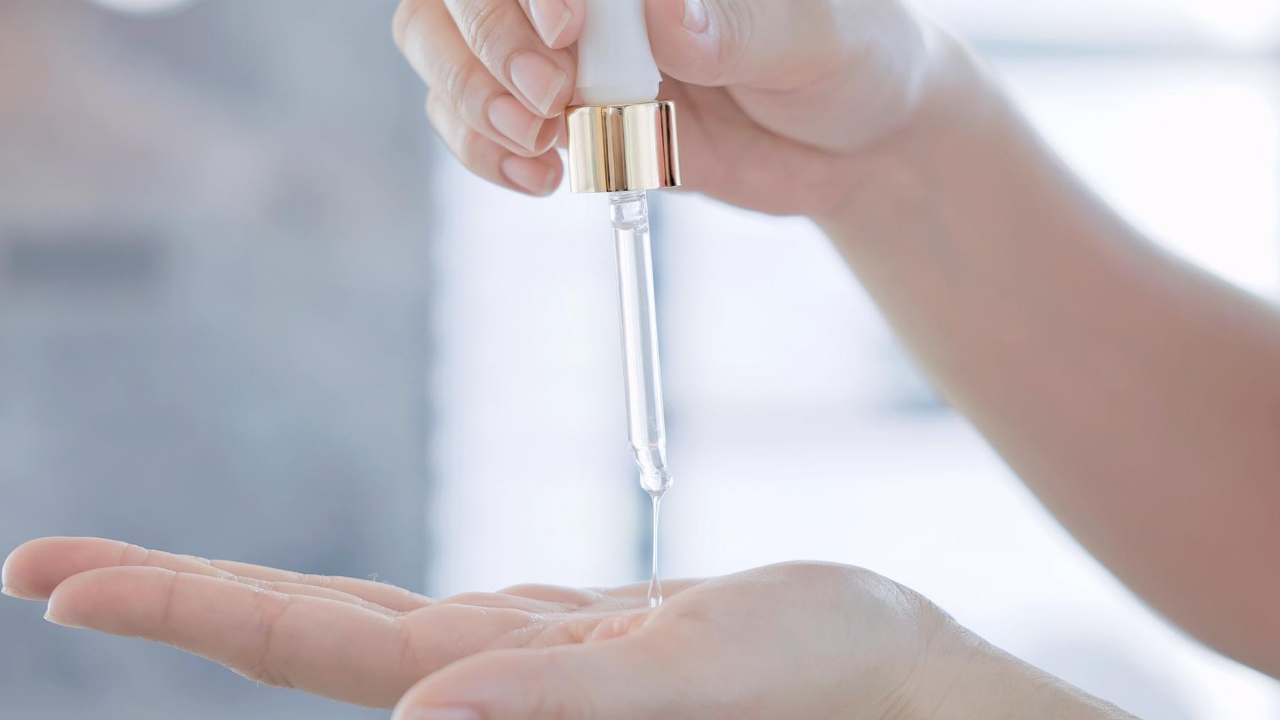Over the last couple of years, we’ve all had the opportunity to spend a little more time and effort on better skin care. I believe most of us have realized the importance it makes to our well-being, not just for cosmetic reasons. Our skin’s health really matters, regardless of our age. That being said, we have also become a little savvier about the quality, prices, and effectiveness of different products. We want the best bang for our buck, and the marketing hype will not fool us. Because we are spending a little more time and research before deciding on a product, shouldn’t we also want to know how to use these products so that they bring us the best results? One key factor is knowing how to correctly layer these products on your skin. We asked one of our Skin Cancer & Dermatology Institute Cosmetic Specialists, Sashah Branscombe, LA, to give us some insight on this topic.
Q: How do I use skin care products for their best effectiveness?
Layering is key!! Knowing which product goes where and when is where it’s at. The rule of thumb is to start with the more lightweight products and work your way up to the thicker ones. Always finish with sunscreen, as this will protect your skin all day. Now, not everyone uses all these products in their daily skin care routine, but here is an idea of how you might layer your products:
- Cleanser
- Toner
- Serum
- Moisturizer
- Sunscreen
Also, give each product a few seconds to settle onto your skin before moving on to the next. This allows your skin to absorb the product a little easier.
Q: What is the reason for using products in a particular order?
You want to use products so they help one another out. Certain products can sometimes amplify another product. The final product you use locks the others in and protects the skin. For example, in the morning, you can use a hyaluronic to attract moisture to the skin and end with sunscreen to protect and block harmful rays. Another excellent morning product to use first is vitamin C. It’s a powerhouse! Antioxidant-rich, and it helps keep your skin tone even and bright! Night skin care routine is also important, which brings me to the next question.
Q: Should I use different products at night?
Yes and no. Hyaluronic can be used anytime, not just in the morning. It can help when mixing with a retinoid to keep your skin from getting as mine constantly does – irritated or overly dry. Retin-A, retinol, and heavy fruit acids should be worn at night only. They work all night to restore and transform. Also, they can make your skin more sensitive to the sun, so these products are best used in your evening skin care routine.
Q: Are there certain products that I should use every day?
Sunscreen is number one! This should be used regardless of your skin type or color, time of year, or whether it’s sunny outside or raining. No one should neglect this vital shield for a couple of reasons. Firstly, and most importantly, sunscreen protects your skin from developing skin cancer! Secondly, other damaging factors occur when the skin has no armor against the harmful rays. Freckles, when we have them due to genetics, are pretty. Spots caused by sun damage aren’t cute. I know many of us enjoy being tanned and the sun’s feeling on our skins. The effects that show up later from skin damage are not attractive. Many of us end up with spotted, mottled skin, and it speeds up the signs of aging. The Skin Cancer Foundation recommends you use a broad-spectrum (protects from UVA and UVB rays) sunscreen with an SPF of 30 or higher. If you are outside exercising, you might want to use a water-resistant product, and if you have sensitive skin, look for sunscreens containing zinc oxide and titanium dioxide. If you enjoy the look of tanned skin, remember that there are a lot of great products out there that can tan your skin safely, and no, I’m not talking about tanning beds. Tanning beds damage your skin as well.
Q: How do I include masks into my routine?
You can use masks anytime on clean skin. Keep in mind that using too much of some types of masks is not good for your skin. Many exfoliating masks can aggravate and overdry your skin. I would recommend using a fruit acid exfoliation mask once a week, and this type of mask is best used at night. Think creamy hydrating masks to soothe and mend a dehydrated or lackluster complexion.
Q: Are there certain products I can add to my skin care routine for specific issues?
There are so many skin care products in the market that promise us great results for all kinds of issues. How do you decide? You know your skin better than anyone. What bothers you the most? Sun damage, post-acne spots? In that case, go for a great small molecule serum that will deliver brightening and fading factors. If your skin is uncomfortably tight, use a hyaluronic serum or a lotion with one built in. Remember, all products aren’t created equal, and neither are our pocketbooks. I would also recommend that you consult a Board-Certified Dermatologist. They will be able to diagnose any issues you might have, let you know your skin type, and work with you to get the skin care that will work best for you and the health of your skin.
Q: As a Dermatology Provider expert, what is your daily skin care routine?
My routine changes a lot because I try different products to see what my clients may like or dislike. A general rule of thumb is don’t overdo it! I’m a victim of this. My skin looks best when I follow a simplistic but effective routine.
AM:
Gentle milky cleanse
Serum – vitamin C, hyaluronic, or both
Sunscreen – a tablespoon for the face
PM:
Fruit acid cleanser
Something for cell turnover such as a retinol
If my skin is too dry, I use an azelaic acid
I top it all off with hydration to lock it in
Don’t forget your eyes! Use an eye moisturizer both in the morning and in the evening.
If you have any other questions about different kinds of skin care products for your skin, how to use them, and what types would work best for you, book an appointment today with one of our expert Providers at Skin Cancer & Dermatology Institute. We have ten convenient locations in the Sierra Nevadas.


